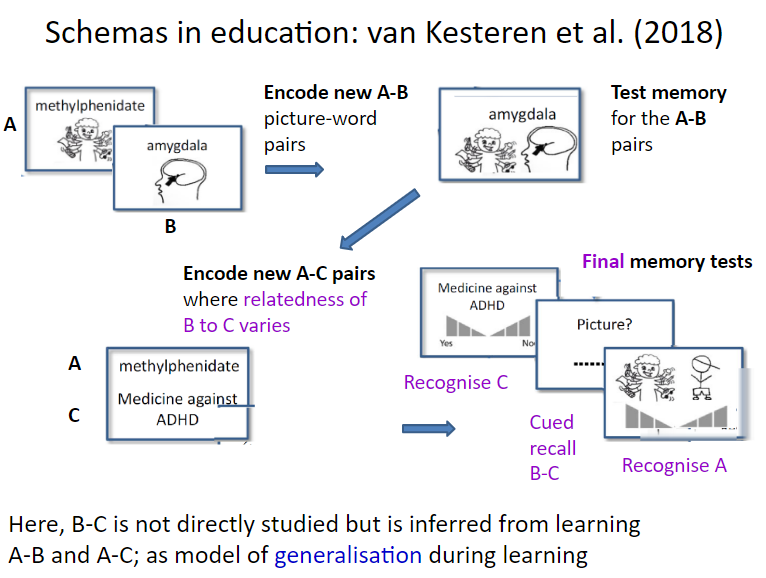Hacking your memory
1/14
There's no tags or description
Looks like no tags are added yet.
Name | Mastery | Learn | Test | Matching | Spaced | Call with Kai |
|---|
No study sessions yet.
15 Terms
what did Sana, Weston and Cepeda (2013) find about distraction in class?
students multitasking on a laptop during class may learn 11% less (it may also affect the comprehension of students around them)
what did the Mueller and Oppenheimer (2014) study find?
taking notes on a laptop is faster but encourages verbatim notes rather than summary (this is ‘shallow’ processing)
what did Wong and Lim (2023) find about mind-wandering?
note-taking is useful in preventing mind-wandering
what is elaboration?
actively relating incoming material to existing knowledge (usually implies a deliberate strategy)
what is elaborative interrogation?
generating an explanation for why an explicitly stated fact or concept is true
what is self-explanation?
explaining how new info is related to known info or explaining steps taken during problem-solving
what is a keyword mnemonic?
using keywords and mental imagery to associate verbal materials (can involve explanation)
results of the van Kersteren et al. (2013) fMRI study
found that the prefrontal cortex is involved in encoding memories that are related to be prior knowledge
the hippocampus is more involved in encoding memories that are not related to prior knowledge
describe van Kesteren et al.’s (2018) study on schemas in education
people had to encode (A-B) picture-word pairs
memory test for A-B pairs
encode new A-C pairs where relatedness of B to C varies
final memory test (what they had inferred B-C relation)

results of van Kesteren et al.’s (2018) study on schemas in education
associative memory was better for inferred B-C pairing if it was schema-congruent
what are self-generated cues?
cues that are created with your personal knowledge and cognitive context
summarise Thomas et al. (2020)
quizzing/testing is more effective at encoding memories than studying
showed transfer to conceptually-related material and different test formats
supports the idea that testing aids concept development and generalisation from learning episode (semantic) as well as memory for instances (episodic)
what are the theories of the testing effect?
semantic elaboration (Carpenter, 2009)
context theory (Karpicke et al., 2014)
what is spaced learning?
revisiting info after a break (this helps memory)
describe the study by Conway et al. (1997)
tested students immediately after a lecture and in a delayed test
immediately after lectures, better performing students ‘remember facts in a particular lecture’
at the delayed test, students ‘knew the facts’ rather than ‘remembered the lecture’
suggests a shift from episodic to semantic memory and generalisation beyond initial context